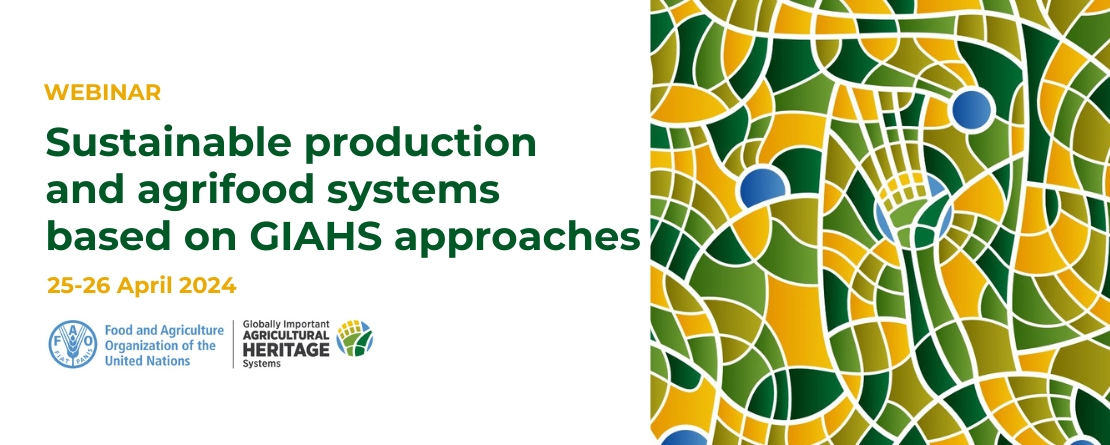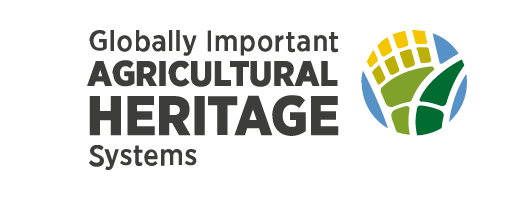Sustainable production and agrifood systems based on GIAHS approaches
Virtual Event, 25/04/2024 - 26/04/2024

The pressing necessity to transform existing agrifood systems, characterized by their substantial environmental challenges—including the excessive use of pesticides and fertilizers, greenhouse gas emissions, water overexploitation, biodiversity depletion, and soil degradation—into systems that are resilient and sustainable is becoming widely recognized on a global scale.
Emphasizing the crucial role of biodiversity preservation and the need to mitigate the environmental impact of agriculture, the Food and Agriculture Organization (FAO) of the United Nations has recognized certain traditional agricultural, forestry, and fishery systems as Globally Important Agricultural Heritage Systems (GIAHS). These systems, which are richly integrated with local cultures and biodiversity, have been carefully adapted to the unique climatic and natural environments of their respective regions. They stand out for their vital contribution to preserving cultural heritage for future generations. As of February 2024, 86 agricultural heritage systems have been officially designated in 26 countries.
In response, the "Project for Promotion and Dissemination of Sustainable Agrifood Systems (GCP/GLO/1185/JPN-F)," funded by Japan, aims to facilitate a global workshop/webinar to gather, analyze and shared information on outstanding initiatives and best practices for promoting greening the supply chain in agriculture.
Objective
The webinar will showcase four GIAHS sites that exemplify long-standing agricultural practices for sustainable agricultural production and agrifood supply chain enhancement, leveraging traditional knowledge and practices. It aims to facilitate the sharing of insights and experiences.
Experts from four systems will share their experiences, highlighting the synergy between traditional wisdom with good practices for global solutions.
Panelists from
Austria: Traditional Hay Milk Farming in the Austrian Alpine Arc
Tunisia Gafsa Oases
Japan: Fallen Leaves Compost Agroforestry in Musashino Upland
Ecuador: Amazonian Chakra, managed by Indigenous communities
Japan: Mamano Chocolate, Cacao supply chain operator
Key information
Dates: 25-26 April 2024Interpretation: English, French, Spanish, and Japanese.
.jpg?sfvrsn=b980caef_9/)
Four agricultural heritage systems showcase how to be sustainable in times of transformation
From the Ecuadorian Amazon to Austrian hay milk production, from the historic oases of Gafsa in Tunisia to a peri-urban agro-ecological system in Tokyo, Japan. Featuring insights from Kotaro Ezawa, a food supply chain operator, on supporting sustainable agricultural practices through Mamano Chocolate
Read the full articleDocuments
- Article report
- Agenda
- Agenda (Japanese version)
- Video Day 1
- Video Day 2
- Fallen Leaves Compost Agroforestry System in Musashino Upland, in the peri-urban area of Tokyo
- Pratiques agricoles durables dans le site du SIPAM : l'oasis historique de Gafsa, Tunisie (Available only in French)
- Traditional Hay Milk Farming in the Austrian Alpine Arc
- Kichwa Amazonian Chakra: A committed and resilient agroforestry system
- Presentation on the activities by the supply chain operators to support farmers sustainable agicultural practices

